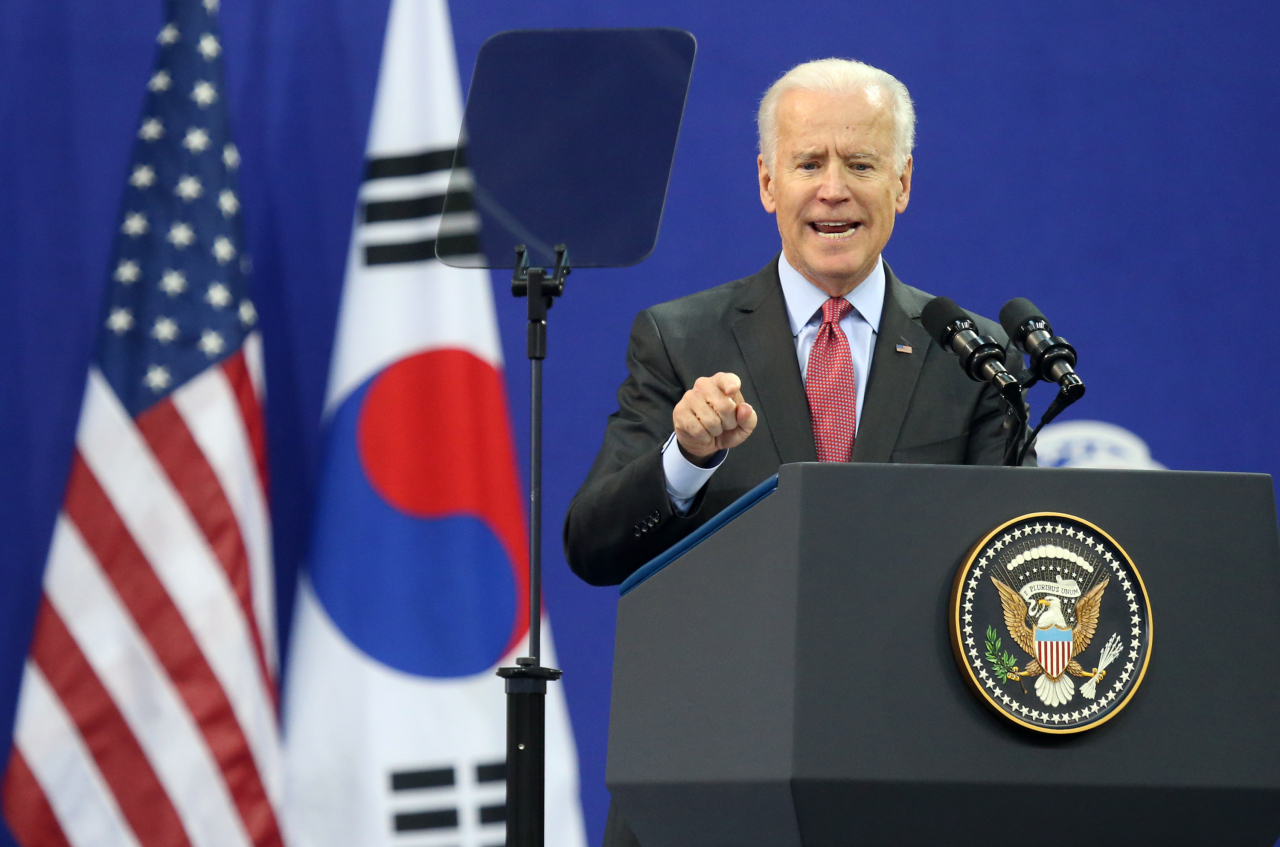 |
The US' 46th President-elect Joe Biden speaks at Yonsei University during his visit to Seoul in 2013, at the time as vice president for the Obama administration. (Yonhap) |
Following the presidential election victory of Joe Biden, the United States is expected to “partly” revive its former free trade policies in the multilateral frame, while maintaining some protectionist actions against China, according to South Korea’s state-run think tank.
The incoming Democrat administration is especially likely to bolster the US’ solidarity with South Korea and other allies on the trade front in order to regain its standing within the World Trade Organization, it added.
“(US President-elect) Biden largely upholds free trade and multilateralism, but has also shown some protectionist aspects throughout the election campaign period,” the Korea Institute for International Economic Policy said in its recent report.
During his years as vice president under former President Barack Obama, Biden was observed to be an advocate of free trade frames, including the Trans-Pacific Strategic Economic Partnership and the North American Free Trade Agreement.
The think tank, affiliated with Seoul’s Ministry of Economy and Finance, claimed that the economic policy framework of the forthcoming US administration should be viewed in two separate parts -- trade policies and other economic policies in general.
“While working to revive the stalled multilateralism on the trade front, (the Biden government) will adopt expansionary fiscal and monetary actions to undergird the economy amid the COVID-19 spread.”
Set to rectify several of his predecessor Donald Trump’s legacies, the Democrat president-elect places value on the international rule-based system and cooperation, KIEP analyzed.
“(Biden) seeks to reform the WTO under the US leadership and through partnership with friendly member states such as the European Union, Japan, and South Korea,” the report said.
The US in the upcoming years is especially likely to expand international partnership in order to deter China’s “unfair” trade practices and infringement of US intellectual property assets, the think tank predicted.
“(Biden) was highly critical of the Trump administration’s excessive tariffs on imported goods from China, as such actions consequently led to (retaliatory) damages for US farmers, manufacturers and consumers,” it said.
As a longtime member of the US Senate Committee on Foreign Relations, Biden is anticipated to lead the country out of Trump’s “America First” slogan and restore the stalled diplomatic relations.
While steering the country back to the multilateral framework, the president-elect is likely to maintain some protectionist aspects in order to redeem the vulnerability of the US’ global supply chain in light of the COVID-19 pandemic, KIEP added.
By Bae Hyun-jung (
tellme@heraldcorp.com)








![[Today’s K-pop] Blackpink’s Jennie, Lisa invited to Coachella as solo acts](http://res.heraldm.com/phpwas/restmb_idxmake.php?idx=644&simg=/content/image/2024/11/21/20241121050099_0.jpg)